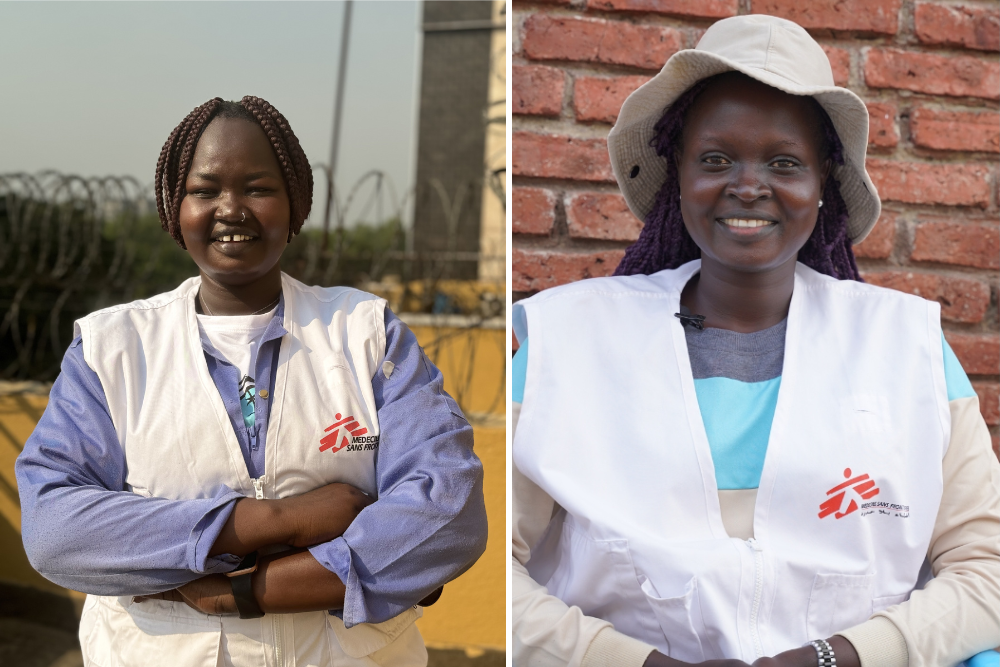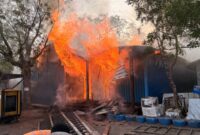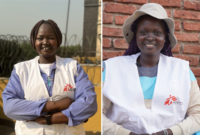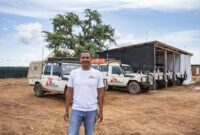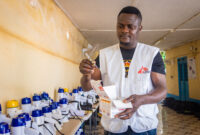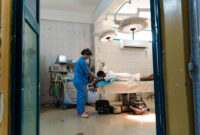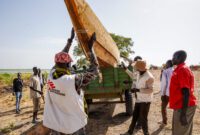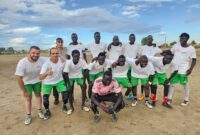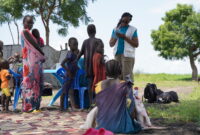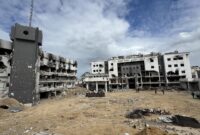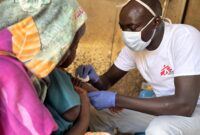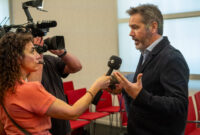South Sudan: Celebrating the impact of female MSF staff
Four women in South Sudan push against gender roles, inspire their communities
On this International Women’s Day we highlight the incredible stories of Doctors Without Borders/Médecins Sans Frontières (MSF) female staff in South Sudan.
From a nurse in the remote area of Boma, to the head of community health in Renk, to Juba’s warehouse manager and air conditioning (AC) technician, these women working with MSF exemplify resilience and strength. By taking on roles traditionally dominated by men, working in complex emergency settings and accessing education, our colleagues serve as inspiring examples to their communities.
Marline Loki, AC technician in Juba
My name is Marlindo Kifranco Ani and I am a specialized technician at MSF in Juba, South Sudan. I joined MSF in July 2022 and my main responsibilities include installation, servicing and maintenance of AC systems, as well as handling electrical work.
What inspired me to become an AC technician at MSF was hearing about the incredible history. When I learned about the organization’s work, I said, “Wow, I want to be part of that history!” That passion drove me to join MSF, even though, at the time, I didn’t know much about MSF’s projects.
Since joining, I have learned so much. MSF has provided me with the training and experience to become capable at handling all aspects of my work. I even had the opportunity to travel to South Africa for a specialized training in AC and refrigeration. The experience I gained, especially from working in field projects, has given me confidence. Now, I no longer fear any challenges – I know I can handle tasks on my own! MSF has truly helped me build my capacity and shaped me into a skilled professional.
What I love most about my work is installation and servicing. This is a career path I chose for myself and that freedom makes me happy every day. However, not everyone has been supportive. Some people try to discourage me, saying that this kind of work is meant for men. But when I reflect on my journey and see what I have accomplished, I remind myself that this is my choice. I am determined to complete my mission.
Looking ahead, I aspire to become a logistics coordinator in the coming years. I also hope to share my knowledge with other women in the community, encouraging and empowering them to pursue technical careers. If I can do it, they can too. My goal is to help break barriers and show that women can excel in any field they choose.
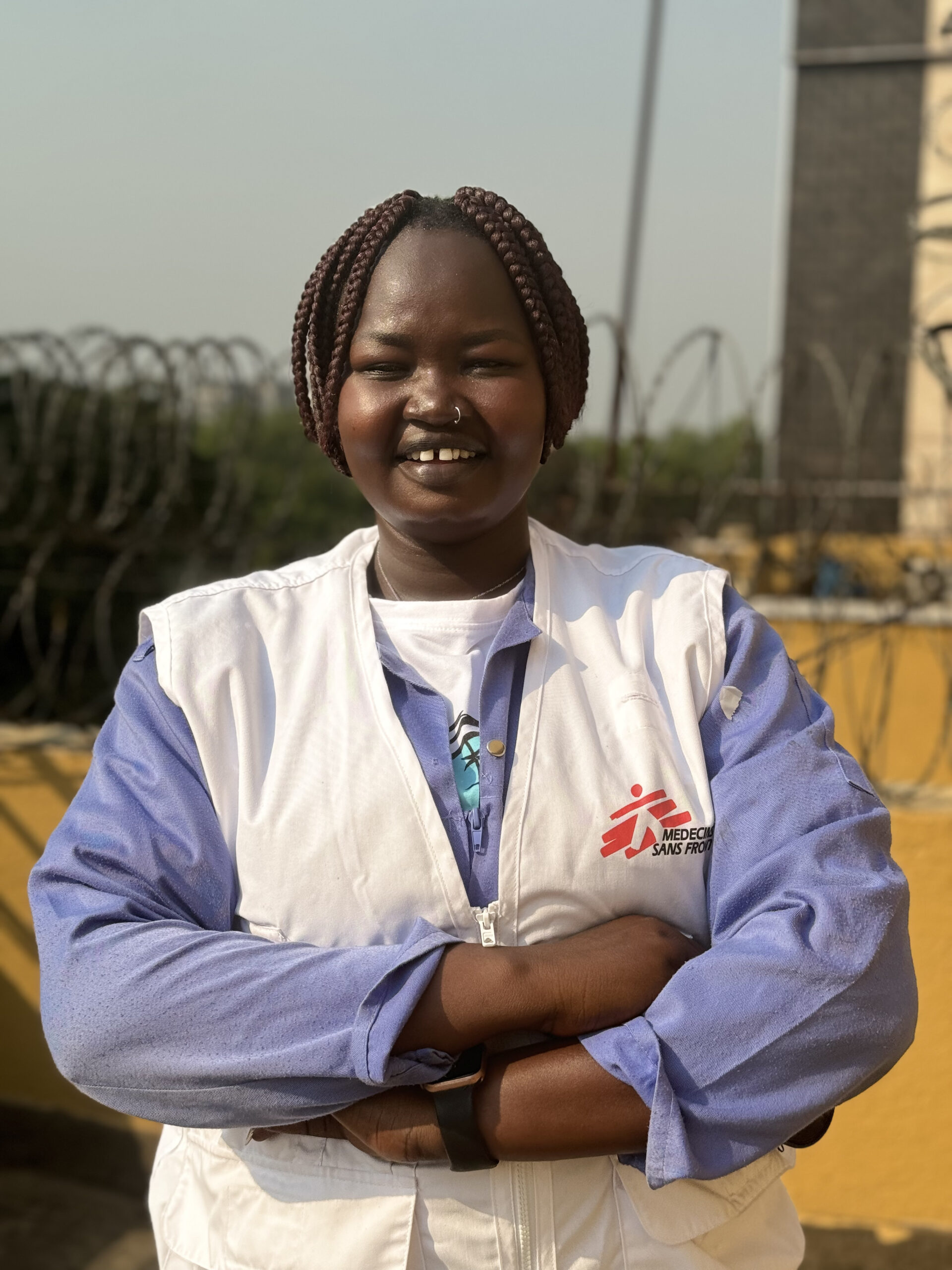
Akuol Elizabeth, head of community health workers in the Renk emergency project
My name is Akuol Elizabeth and I am the head of community health workers in the Renk emergency project with MSF. I lead a dedicated team of 10 community health workers who work tirelessly both at Renk civil hospital and throughout the community.
Every day, we go from household to household, identifying people in need, providing counselling and referring those in need of critical care to the hospital. We support children or lactating women at risk of malnutrition, while also delivering essential health education on vaccinations, hygiene and disease prevention. Whether distributing mosquito nets, promoting hygiene in the wards or conducting community surveillance, our goal is to make a meaningful impact on the lives of those we support!
Beyond care delivery, I ensure my team continues to grow and improve. I organize monthly training sessions to strengthen their skills and every first Wednesday of the month, we come together to review our progress and discuss challenges. The work is not easy – floods, conflict and trauma have deeply affected this region – but I remain committed to doing everything I can to ensure the best outcomes for the people of Renk.
What motivates me the most is my love for the community. Giving health messages to someone means a lot – you have changed someone’s life.
My team and I are at the forefront of the MSF Renk emergency response, providing support to those who need it most. Despite the challenges, we continue to push forward because we know what we do saves lives.
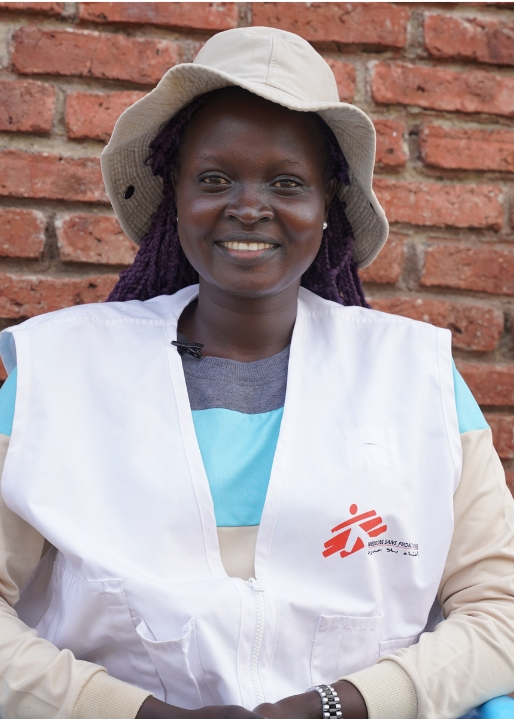
Martha Korok, nurse in Boma
My name is Martha Korok and I am one of only four South Sudanese female nurses working in the town of Boma, in Greater Pibor Administrative Area. Even in the MSF Academy [work-based skills sharing and learning program], we are very few women. In our culture, many believe that a girl should not go to school, which is why we have so few educated women.
But we are proving that mindset wrong. We are an example for our communities. When people see us working, they say, “Oh, if a woman is educated, she can be even better than a man.” That is why I am so passionate about my work – I want my community to understand that women are important. We need more girls to receive an education.
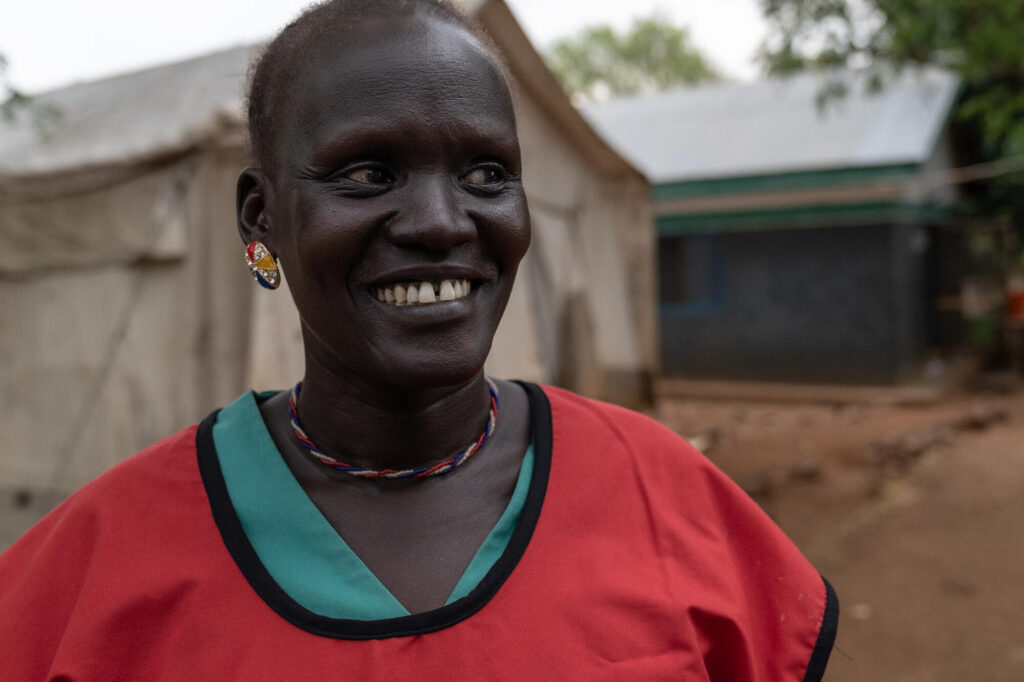
I joined the MSF Academy for Healthcare and now I serve as a mentor to nurses in the academy and a role model to young women in Boma. It makes me proud to know I am part of this change.
I love being with patients because this is my work, my calling. I serve my community and my home and that is what makes me happy.
Men have traditionally dominated the field of nursing in South Sudan, but that is changing. And I am proud to be part of that change.
Susan James Jokudu, warehouse supervisor in Juba
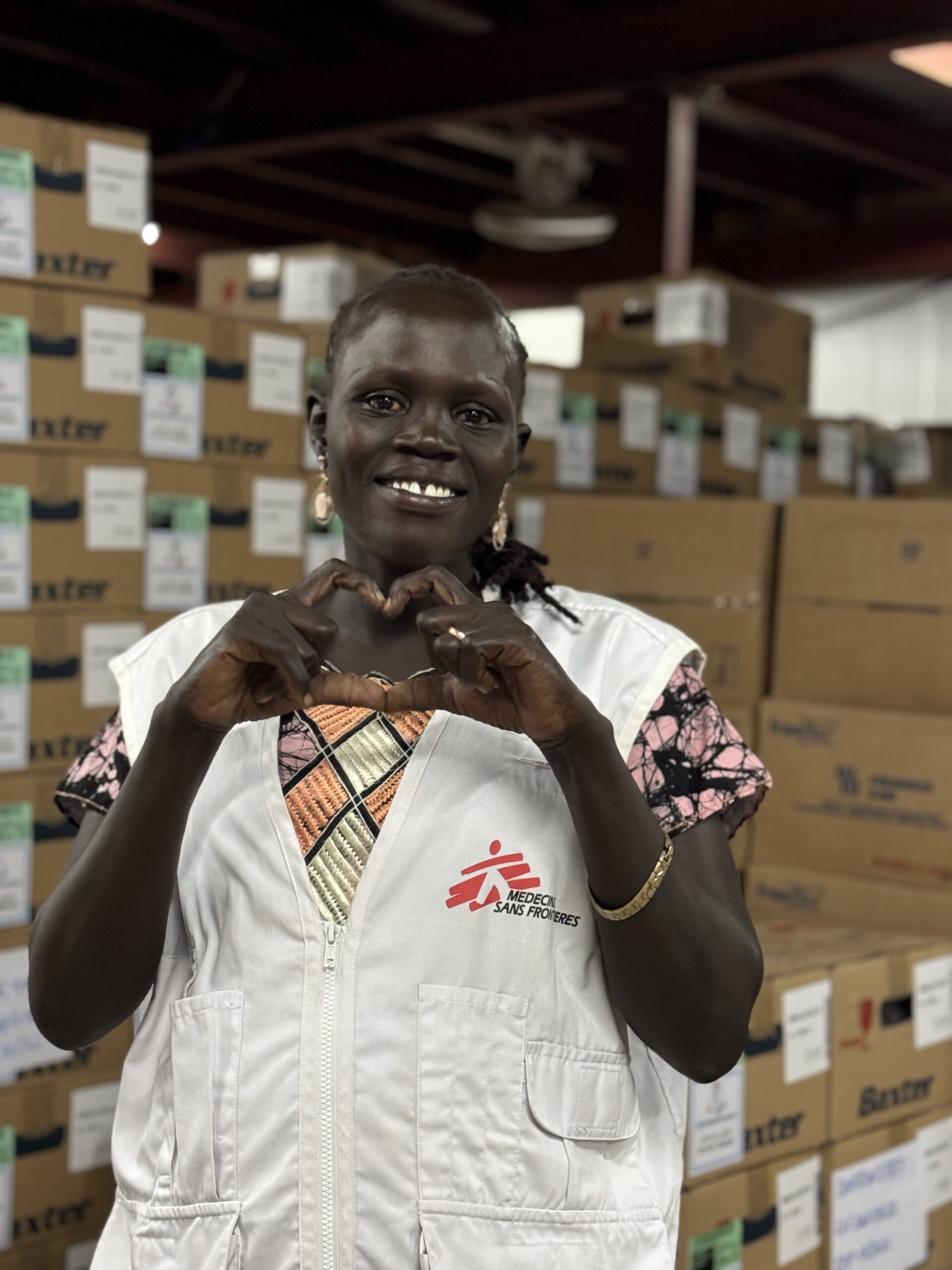
I was born in Kajo Keji, South Sudan, in 1989, but my family fled to Uganda when I was three due to war. Life in the Rhino refugee camp was difficult – sometimes we had no food for days, but my mother always found a way to provide for us. Education was a privilege few could afford, but I was determined to study. When I was in high school, my father passed away, leaving my mother to care for five children alone. Out of my siblings, I was the only one who made it to university.
I dreamed of becoming a doctor, inspired by the MSF teams I saw in the camp, but financial challenges made it impossible. Instead, with my elder brother’s support, I studied logistics. In 2015, I joined MSF as an order processor in the supply department, driven by a deep desire to give back. Seeing the MSF logo again in Juba, the same one I remembered from my childhood, felt like a calling.
In my community, women in MSF are often associated with roles like nursing or midwifery – logistics, mechanics and driving are seen as jobs for men. I challenge these stereotypes, telling young women gender should never limit what they can achieve. In 2024, I applied for a warehouse supervisor position, competing against five men. I worked hard, prepared thoroughly and proved women can excel in any role.
Before starting with MSF, my journey had not been easy – I once worked night shifts washing dishes just to support my family. My late brother sacrificed his own education to fund mine and though he passed away before we could fulfil our dream of him returning to school, I now ensure his children get the education he wanted.
My work is more than a job – it changes lives. I’ve visited MSF projects and seen mothers receiving hygiene kits we packed, children getting essential medicines we shipped. These moments remind me why my job matters. I’m proud of how far I’ve come and hope to grow further in MSF, pursue a master’s degree and take on international assignments to make an even greater impact.
